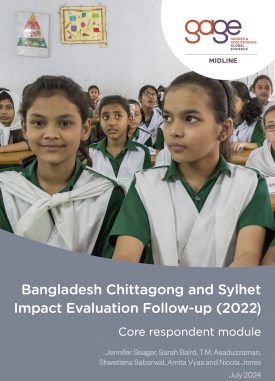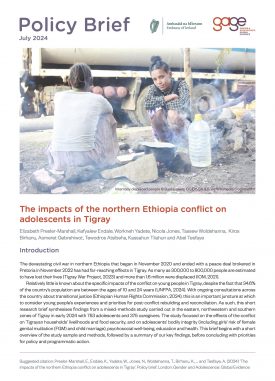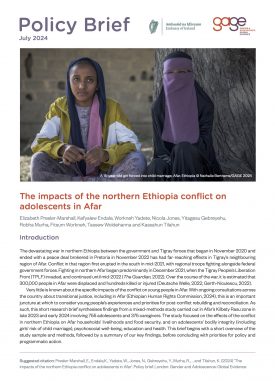UNICEF Jordan’s Makani programme has evolved considerably since it was launched in 2015. It was initially designed to provide informal education and child protection services to Syrian refugees fleeing war in their country. Today, it provides a wide array of age-tailored services for vulnerable Jordanian, Palestinian, Syrian and Dom (a marginalised ethnic minority group) children, adolescents and youth living in host communities, formal refugee camps and informal tented settlements. During the 2021–2022 school year, UNICEF piloted a conditional cash transfer for adolescents aged 13–18, of 65 Jordanian dinars (JOD) a month (~$92), on condition that they attend both school and Makani programming regularly. This brief, which draws on mixed-methods baseline research conducted with adolescents and their parents in early 2022, explores the early roll-out of this cash transfer and the broader adolescent empowerment programming that it complements. Future research rounds (in late 2022 and in 2024) will assess the medium- and longer-term impacts of the cash transfers on adolescent well-being.
Suggested citation:
Presler-Marshall, E., Jones, N., Małachowska, A. and Oakley, E. (2022) ‘UNICEF Jordan’s Makani Programme: supporting students, building resilience’. Policy brief. London: Gender and Adolescence: Global Evidence. (https://www.gage.odi.org/publication/unicef-jordans-makani-programme-supporting-students-building-resilience/)


